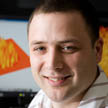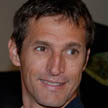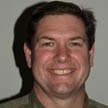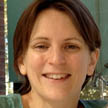I’m a Scientist is like school science lessons meet the X Factor! School students choose which scientist gets a prize of $1000 to communicate their work.
Scientists and students talk on this website. They both break down barriers, have fun and learn. But only the students get to vote.
This zone is the Boron Zone. It has a range of scientists studying all different topics. Who gets the prize? YOU decide!









This is a good question – but I don’t think it is possible for humans to come up with an answer, at least within the framework of science as we currently understand it. I don’t think there is any way we can probe what happened before the first 10^(-44) s of the universe – this is known as the “Planck time” which comes out of combining a bunch of physical constants, and is understood to be the minimum time scale measurable.
People once speculated that the big bang could be followed by a big crunch – once gravity stopped the expansion of the universe, and caused it to collapse on itself. Then there might have been another big bang and the cycle would continue. The same events would not happen again – there is too much chaos in the universe for this to happen!
But – now we know that the expansion of the universe is actually accelerating (attributed to something called “dark energy” that we know almost nothing about), so there will be no big crunch.
0
An excellent question, but unfortunately one we cannot easily answer. Our current understanding of the Universe doesn’t really allow us to predict what happened before the Big Bang, if anything.
A lot of people have speculated about other universes, and there are a lot of very elegant mathematical theories about them, but at the moment we don’t have any way to test them! Some of the theories that combine all of the fundamental forces (strong and weak nuclear forces, electromagnetic force and gravity) need to have other universes to work properly. As I said though, we don’t have a way to test them yet!
0
No idea.
0
I like Matthew & Simon’s answers
0